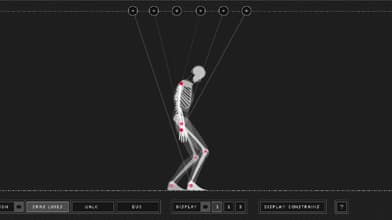Mobile gaming keeps exploding, yet one corner of the ecosystem has settled comfortably into our routines: the casual game. Titles in this lane don't demand much beyond a finger tap, so they squeeze into the spare minutes that pop up between work emails or on a crowded bus ride.
Because the sessions are short and the controls obvious, both rookie players and lifelong veterans feel welcome. Even folks who swear they never touch games will give a quick nod when a friend launches something friendly like Fish IO or the quieter puzzle delight called Ruya. Simply put, casual gaming has cracked the code of instant fun.
Benefits of Casual Games
Sliding into a quick casual game is usually just for fun, yet the upside often creeps in unnoticed. A few minutes on something light can shave off the day's stress, lift your spirits, and polish the mind. In the serene world of Ruya, placing tiles into patterns feels oddly meditative and surprisingly sharpens focus. Try Fish IO for a different buzz nearly every second, a blink-and-you-miss-it arena that trains reflexes while demanding a tiny battle plan. Because the stakes never climb higher than your next high score, the whole affair stays friendly even when the brain is working overtime.
The Evolution of Casual Games
What once meant flashing pixels on a phone screen has morphed into pocket-sized productions you'd swear belong in a console. Titles such as Fish IO, splashcolour,r and mayhem side by side, yanking players into wild underwater skirmishes that feel oddly heroic. Flip to Ruya and the tonshiftsit's quiet, minimalism sings a different story while still making each move matter. Graphics pop, controls obey instinct, and suddenly, casual gaming shelves squeeze in alongside novels on commuter trains. The upgrades have pulled in everyone from occasional clickers to die-hard puzzle fans, establishing the genre as a daily habit rather than a passing diversion.
Social and Interactive Elements
In the world of casual games, social hooks are becoming the norm rather than the exception. Swift leaderboards, flashy badges, and one-tap share buttons turn a solo run into a mini-event everyone can see.
Take Fish IO; that global scoreboard is both a brag wall and a morning motivation. On the other side, Ruya nudges players to post their in-puzzle milestones, and a short caption can suddenly start a conversation. These bits of interactivity stitch strangers together, and before long, the game feels less like a lonesome task and more like a hanging-out tradition.
Challenges in Crafting Casual Games
Building a casual game is a never-ending tightrope walk. One misstep toward over-complexity and rookies wander away; lean too light, and veterans shrug it off.
Ruya sidesteps the pitfall by ramping puzzle difficulty like a quiet staircase, so you rarely notice the upward slope until it swells. Meanwhile, Fish IO blasts players with splashes of speed and surprise, daring them to keep up or quit whining.
Freshness matters, too. Without constant drops, new boards, and limited-time showdown titles can go stale before the thank-you emails even land.
That pressure sits squarely on devs, who keep checking the calendar and praying inspiration strikes before the next patch deadline. In a crowded market, yesterday's gimmick smells off by lunchtime.
The Future of Casual Games
Everybody keeps saying the future of casual games is shining brighter each season, and you can almost see why. Augmented reality can drop a virtual ocean under your coffee table, a trick already teased in Fish IO, while tuned-A.I. quietly reshapes Ruya puzzles to suit whatever mood your brain is in that minute. Casual titles twist and stretch so easily that they almost dare the trend police to keep up, meaning phones and tablets will probably stay the genre's number-one hangout for a long while.
Conclusion
Casual games have wedged themselves so snugly into mobile life that skipping one feels odder than forgetting your morning coffee. Projects such as Fish IO and Ruya prove the point by wrapping reliable mechanics in eye-candy art and just enough challenge to steal a spare moment or two. Gadgets will keep getting smarter, so the little bursts of escape these games deal out are almost certain to multiply. Whether you dodge fish or slide dreamy blocks, a microadventure is always a tap away, ready to lighten an otherwise ordinary stretch of time.






